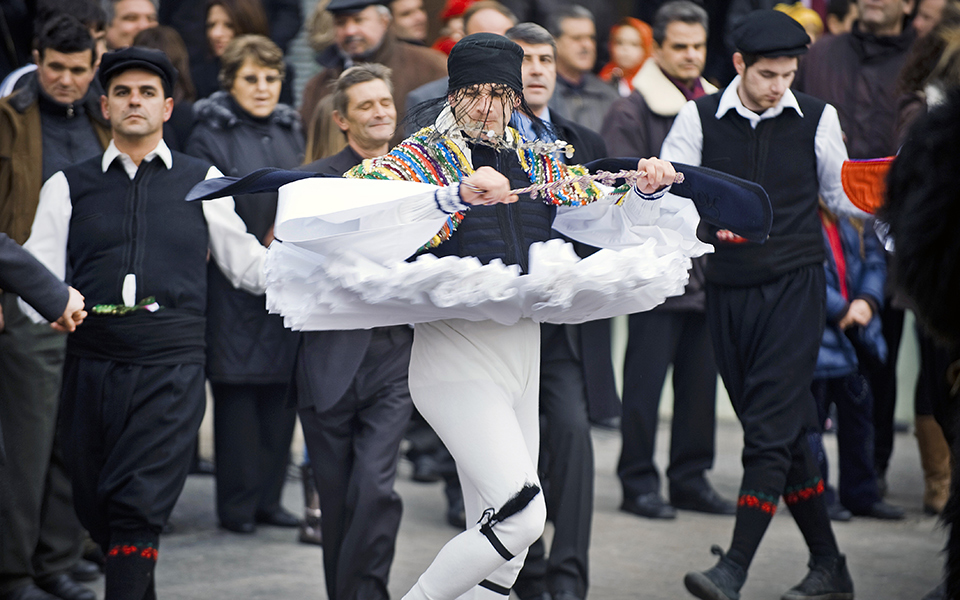THE BONFIRES OF FLORINA
Every year on the 23rd of December, Florina catches fire. Huge bonfires are lit throughout the town’s neighborhoods and in the surrounding villages as part of a custom that has its roots in pagan fire-worshipping rituals that date back to the pre-Christian era. Fire was once considered a harbinger of the light and warmth provided by the sun and thus considered auspicious for good weather and bountiful harvests. Subsequently the custom was Christianized and linked to the fire lit by the shepherds on the night Jesus was born, and the heralding of the arrival of the Messiah.
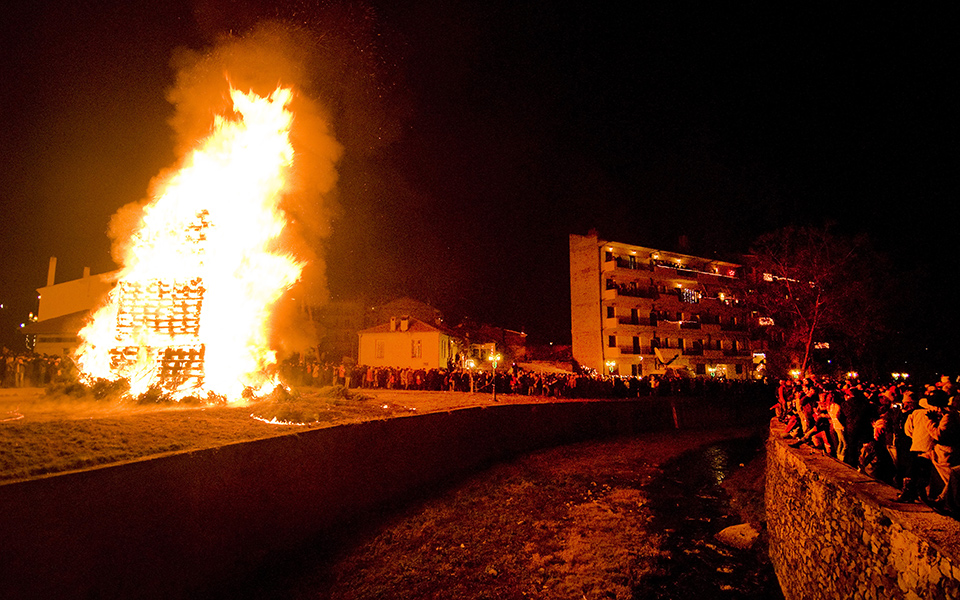
© Clairy Moustafellou
The largest bonfire is lit in the central Iroon Square on Anexartisias Street next to the river Sakouvela. A giant wooden scaffolding is set ablaze at midnight and revelers are further warmed by fasolada (a hearty bean soup) and tsipouro (a grape-based spirit) while a brass band plays into the early hours. Sparks fly into the night sky and the flames are reflected in the river’s waters while the roar of the fire adds to the din created by the band and the crowd. Caught between the intense heat of the flames and the bitter cold air that Florina is famous for, revelers experience truly primeval sensations.
INFO
When:
December 23
Where:
Florina, Western Macedonia
How to get there:
Florina is about 570km from Athens and 160km from Thessaloniki. You can get there by KTEL coach [tel. (+30) 23850 22430] or by train [tel. (+30) 23850 22404].
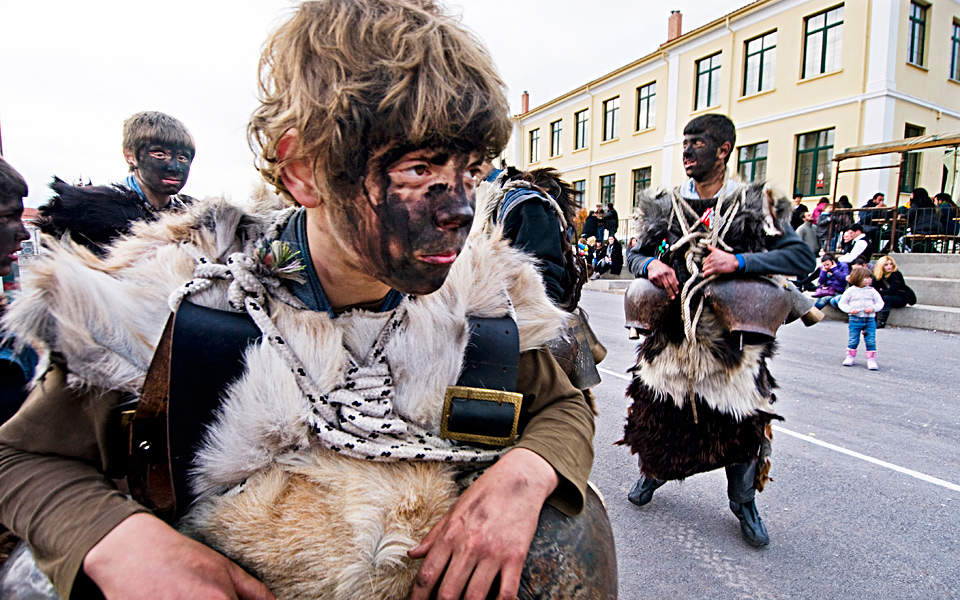
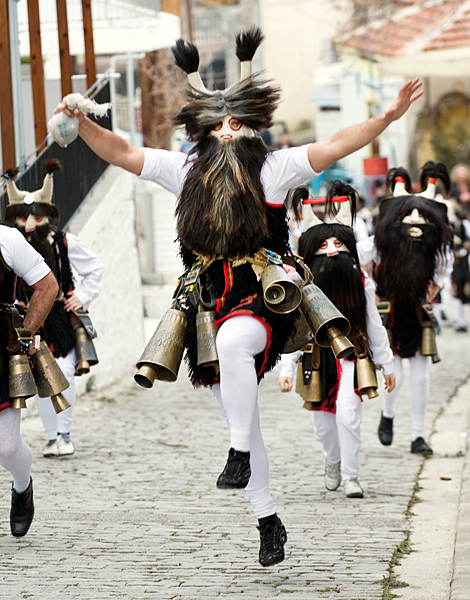
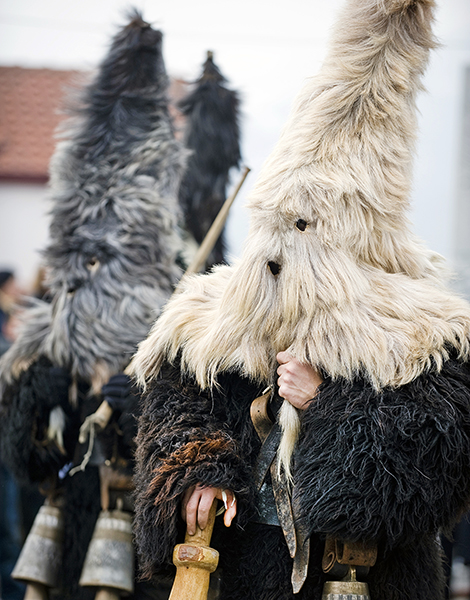
THE BEASTS OF DRAMA
INFO
When:
January 6-8
Where:
Drama, Eastern Macedonia
How to get there:
Drama is approximately 650km from Athens and 150km from Thessaloniki. You can get there by KTEL coach [tel. (+30) 25210 32421] or by train [tel. (+30) 25210 32444], or by airplane (www.aegeanair.com) via Kavala airport in Chrysoupoli (60km).
Throughout the region of Drama during the days of the Epiphany (which follow the end of the twelve days of Christmas) locals act out traditional rituals with ancient roots. Famed throughout Greece, they combine Christian traditions with a pagan sense of ecstasy. Participants dress up as otherworldly beasts, draped in hides or cloaks laden with bells together with horned masks or blackened faces in order to both drive away evil spirits and stir the forces of nature in order to ensure good health and abundance. Villages such as Volakas, Kali Vrysi, Monastiraki, Petrousa and Pyrgoi devoutly keep the Dionysian tradition alive which has been enriched with Christian symbolism (mainly associated with St. John the Baptist). Groups of musicians playing traditional instruments such as lyres, bagpipes and tambourines add to the cacophony. The music together with the jangling bells of the costumes – not to mention plenty of alcohol – help to create a heady atmosphere.
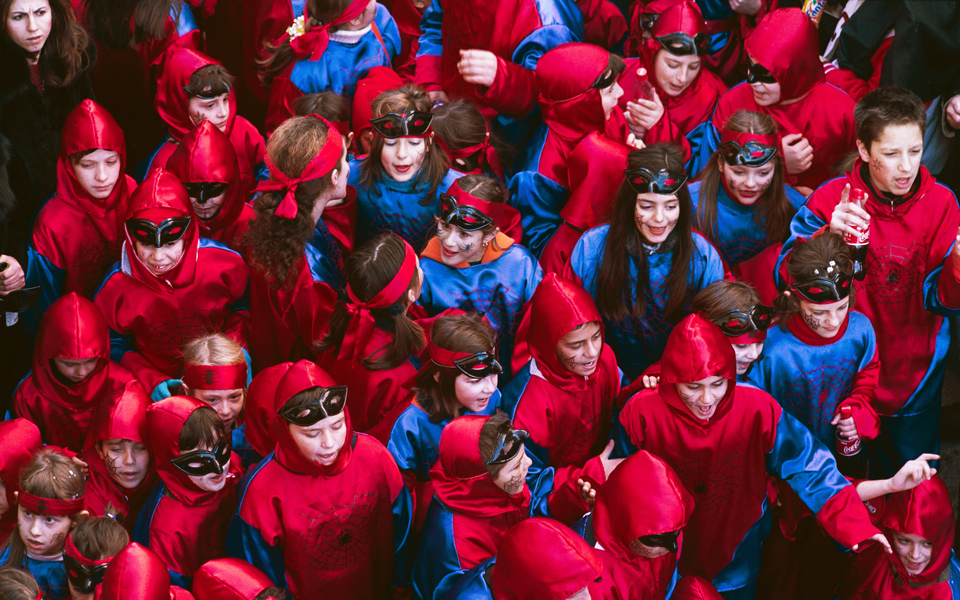
RAGOUTSARIA KASTORIAS
Groups of locals dress up and roam about the city in early January infusing the Christmas season with the spirit of Carnival. But the real stars are the musicians as the best brass bands of the Balkans and northern Greece play from morning until night, filling the streets with music. The custom has its roots in ancient winter Dionysian festivals and is known as the Ragoutsaria from the Latin word rogatores which means ‘beggars’, as participants would ask for treats and tips as they went from house to house warding off evil spirits. Today many participants wear more modern costumes, but the purpose of the traditional costumes which were made of bell-laden animal hides with frightening horned masks or blackened faces was to chase off evil and ensure abundance. The festivities peak on January 8 with groups parading through City Hall Square towards the Doltso neighborhood. Each individual group customarily chooses a satirical theme for their costumes and has their own float and band. It is the culmination of a three-day festival when the whole town lets loose with music, singing, dancing and Dionysian quantities of wine and tsipouro.
INFO
When:
January 6-8
Where:
Kastoria, Western Macedonia
How to get there:
Kastoria is 490 km from Athens and 200km from Thessaloniki. You can travel by KTEL coach [tel. (+30) 24670 83455] or by plane to Argos Orestiko which is 10km away from the town [tel. (+30) 24670 21700].

